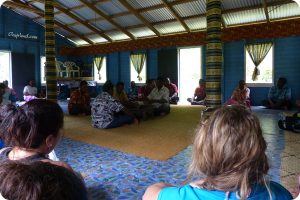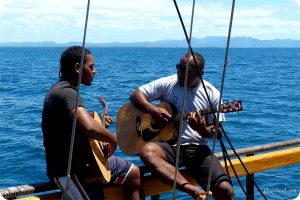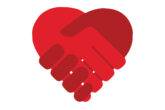 When my first wife left me I was living in her house, in her neighborhood, next door to her brother and his wife, and most of my social relations were with their friends. So the day she walked out I lost most of my community and to say I felt isolated, lonely, and terrified would be a massive understatement. Also I didn’t see us living in this higher crime neighborhood for very long so I didn’t invest much time making friends nor knowing my neighbors. Further I was also doing most of my shopping either online or at the big box stores, so I didn’t have any relationships with the people that worked there. For me the pain of divorce was a huge wake up call to take a look at all my relationships and how I want to live.
When my first wife left me I was living in her house, in her neighborhood, next door to her brother and his wife, and most of my social relations were with their friends. So the day she walked out I lost most of my community and to say I felt isolated, lonely, and terrified would be a massive understatement. Also I didn’t see us living in this higher crime neighborhood for very long so I didn’t invest much time making friends nor knowing my neighbors. Further I was also doing most of my shopping either online or at the big box stores, so I didn’t have any relationships with the people that worked there. For me the pain of divorce was a huge wake up call to take a look at all my relationships and how I want to live.
When our first impulse is to invest our time and money outside the community we are sending a message that we have given up on the people around us.
I grew up doing this and was unaware and had no understanding that by valuing money and time over people I was inviting loneliness, isolation, poor health, and an overall lower quality of life. By contrast when we are buying or investing time and money locally from those around us we send the message that we believe in the people in our community and we are going to stand by them and have their back no matter what. I was and still am stoked to discover this leads to better health, connectedness, belonging, friendship, and if we find ourselves in a difficult situation we can reach out to our community and get the support we need.
How does this work you might ask? Well studies and data tell us that centenarians have rich social connections and live in an intimate supportive community. My own personal experience is that I feel much better when I am immersed in a group of people who see and value me, and I them. The way I make sense of this is to look at how nature hangs out, grazing animals in herds, wolves in packs, lions in prides, bees in hives, birds in flocks, ants in colonies, and fish in schools. It seems we humans are the only species to abandon our ways of being with each other, as our ancestors lived in tribes or villages and did most things together.
How many of us know more about and spend more time with our phones or televisions than we do our neighbors?
I know when the internet connection dies in our house everyone takes notice and restoring the connection becomes a priority. How many neighbors die and their passing goes unnoticed and unmourned? I have lost my smartphone and it was quite a distressing 24 hours until it was found and returned. I have had relatives die and there wasn’t the same feeling of loss and concern about how I would live without them.
The older I get the more aware I am of how we treat our elders and it seems we outsource taking care of them as well. Dying forgotten in a nursing home or hospital room doesn’t sit well with me. I used to see modern medicine as a way to make my body immortal and cheat death. I then studied how our ancestors lived and discovered they revered their elders and they believe we already are immortal, and trying to keep the body alive forever would be like trying to stop the sun from setting.
 When I look around at how our neighborhoods and towns are built it seems obvious that vehicles and real estate appreciation are the priorities. It’s easy to drive through a neighborhood and right into a garage without seeing or saying a word to anyone. The yards and common areas are manicured and pretty to look at and at the same time the question that comes up for me is where is the food? Where is the orchard? Where is the pasture for the chickens, goats, pigs, or cows?
When I look around at how our neighborhoods and towns are built it seems obvious that vehicles and real estate appreciation are the priorities. It’s easy to drive through a neighborhood and right into a garage without seeing or saying a word to anyone. The yards and common areas are manicured and pretty to look at and at the same time the question that comes up for me is where is the food? Where is the orchard? Where is the pasture for the chickens, goats, pigs, or cows?
How sustainable is a community that literally can not feed us?
I live 100 feet from the bay and the fishing spots have signs telling people not to eat the polluted fish. There are lots of wild ducks and geese around and we don’t eat them either because it’s illegal. Instead there is a big supermarket a mile away that has fish and meat from who knows where, and we certainly have no idea how the animals lived and if they were cared for.
Changing the habit of buying or “relating” online or from whoever is cheaper is a daily struggle for me. The one click buy now button is so darn convenient. At least until I get sick or need someone to sit with me and hear me. How many of those Facebook “friends” am I going to get together with and share my heart with on a regular basis, and do we really know each other in any kind of intimate way, or can we count on each for support in time of need? Getting divorced I found out the hard way, and while I’m grateful for the awareness it lead me to, the experience was very painful and really hard. I recommend finding an easier way to learn this lesson of the value of community and being rich in people.
I started buying surfboards in a disconnected relationship-less way, I either bought off the retail rack or I would check an online catalog of mass produced boards and then buy from whatever store had one in stock, in and out of the store in a few minutes with no questions asked. I don’t know and never met any of the people who made those boards. Now I buy from my local surfboard shaper and I know the guys at the shop. If I want to try something new we talk it out, find a design that works, and afterwards there is a feedback loop that creates a richer experience. I’m not saying don’t buy wine and cheese from France or Olive oil from the Mediterranean or surfboards from Thailand.
What I am saying is that when I look to my neighbors and shop face to face and trade goods hand to hand I have no desire to buy anywhere else.
Sometimes it seems merchants also have the mindset of selling mass market globally, as if selling locally and having to “deal” with customers is an inconvenience and not worth their time. I suspect a big piece of this is the pressure to pay the every increasing mortgage or rent and the unnatural desire to save up for a future retirement (if we love what we do why would we want to retire?). I sure have fallen into the trap of wanting hands off income, never touch the product nor see anyone involved, and the funds are transferred electronically. Sounds like easy money, and yet every one of those deals has left me feeling hollow and unsatisfied. The unseen or hidden costs to these transactions is people and social connections. When our “community” is a long car ride or plane flight away the odds of establishing and maintaining intimate relationships become highly unlikely. It’s been said that long distance relationships can work as long as the long distance part comes to an end in the near future. There needs to be a coming together and staying together.
So how do we come together? The way I was taught is to start by reuniting, reclaiming, and integrating all the parts of myself that I had abandoned and tried to get rid of. I had to reconnect and befriend that part of myself that was told I had a bad voice and can’t sing, and all the dorky, uncool, unhip, nerdy, strange, alternative, and weird parts of myself that were laughed at and told they weren’t welcome and that I had tried to hide or disown. None of my relationships had any emotional intimacy because I wasn’t aware of my feelings or thoughts. This all turned around when I started taking inventory of my feelings and looking at which thoughts I was choosing to believe. Knowing thyself allowed me to see beneath the topical differences and see the deeper truth that we all have the same feelings and needs. When we see our similarities we can feel safe and connect to anyone and everyone. There is nothing to be afraid of, we are one and the same, there is no separation, we are them and you are me.
Appreciating our differences
The flip side of this coin is seeing our differences and welcoming them as gifts, instead of seeing others as having a competitive advantage that will take away from us. It’s our unique differentness that guarantees our survival and safety. If we truly were the same that would be scary as it would mean we are replaceable and expendable. We have different and unique fingerprints, retinas, gait, speech, talents and gifts that no one else has. No one else can do what we do the way we do it, this makes us priceless and irreplaceable. Seen from this perspective competing with each other seems quite insane, I believe what’s really happening is not competition buy imitation. People are trying to be what our society tells us we need to be or take on the role that has a proven track record of financial success: doctor, engineer, lawyer, accountant, professor, business owner or executive. Where as we are often discouraged from developing our talent as an artist, writer, musician, healer, spiritual teacher, surfer, fisher, outdoor guide and the like.
What might it look like if we all supported each others unique talents and gifts, no matter how seemingly ridiculous or time wasting these pursuits appeared?
 Is it possible that this kind of system would be self sustaining by definition? The farmer or hunter trading with the singer or songwriter, we all get fed and nourish our bodies and souls. It sure seems this simple to me, why is our system so complex? Why are so many of us doing work we don’t want to do, and trying to be somebody else?
Is it possible that this kind of system would be self sustaining by definition? The farmer or hunter trading with the singer or songwriter, we all get fed and nourish our bodies and souls. It sure seems this simple to me, why is our system so complex? Why are so many of us doing work we don’t want to do, and trying to be somebody else?
Every culture has music and has had music for as long as anyone can remember. When a famous singer dies the whole world mourns the loss, so why do we tell our kids that being a musician is unrealistic and or a waste of time? Do we try to make an apple tree grow oranges? Or a cow lay eggs? Or a tree grow a steel trunk? The moon has her cycles and moves the tides, and the sun, earth, and the winds work together in a way that keeps us all alive. How about instead of trying to make the world the way we want it, we get in sync and live in harmony with the way things are? This includes humans, each of us is uniquely designed to move and be a certain way. How about we come together and celebrate our gifts and use our creativity to welcome and find a place for everyone?



